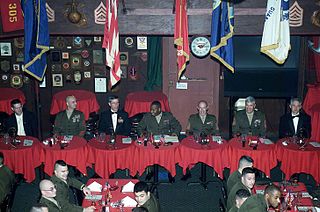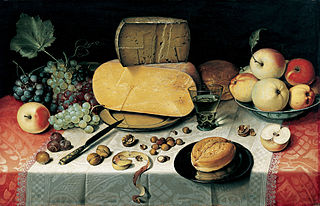 W
WEtiquette is the set of conventional rules of personal behaviour in polite society, usually in the form of an ethical code that delineates the expected and accepted social behaviours that accord with the conventions and norms observed by a society, a social class, or a social group. In modern English usage, the French word étiquette (ticket) dates from the year 1750.
 W
WThe Book of the Courtier by Baldassare Castiglione, is a lengthy philosophical dialogue on the topic of what constitutes an ideal courtier or court lady, worthy to befriend and advise a Prince or political leader. The book quickly became enormously popular and was assimilated by its readers into the genre of prescriptive courtesy books or books of manners, dealing with issues of etiquette, self-presentation, and morals, particularly at princely, or royal courts, books such as Giovanni Della Casa's Galateo (1558) and Stefano Guazzo's The civil conversation (1574). The Book of the Courtier was much more than that, however, having the character of a drama, an open-ended philosophical discussion, and an essay. It has also been seen as a veiled political allegory. It offers a poignantly nostalgic evocation of an idealized milieu — that of the small courts of the High Renaissance which were vanishing in the Italian Wars — with a reverent tribute to the friends of Castiglione's youth, in particular the chastely married Duchess Elisabetta Gonzaga of Urbino, to whom Castiglione had addressed a sequence of Platonic sonnets and who died in 1526. The work was composed over the course of twenty years, beginning in 1508, and ultimately published in 1528 by the Aldine Press in Venice just before the author's death. An influential English translation by Thomas Hoby was published in 1561.
 W
W"The captain goes down with the ship" is a maritime tradition that a sea captain holds ultimate responsibility for both their ship and everyone embarked on it, and in an emergency will either save those on board or die trying. Although often connected to the sinking of RMS Titanic in 1912 and its captain, Edward J. Smith, the tradition precedes Titanic by at least 11 years. In most instances, the captain forgoes their own rapid departure of a ship in distress, and concentrates instead on saving other people. It often results in either the death or belated rescue of the captain as the last person on board.
 W
WCourtesy is gentle politeness and courtly manners. In the Middle Ages in Europe, the behaviour expected of the nobility was compiled in courtesy books.
 W
WA courtesy call is a call or visit made out of politeness.
 W
WDining in is a formal military ceremony for members of a company or other unit, which includes a dinner, drinking, and other events to foster camaraderie and esprit de corps.
 W
WEscalator etiquette is the etiquette of using escalators. In many places, there is a convention that people should stand on a particular side to allow other people to walk on the other side. Standing on the right is the most common convention, following early escalator design in London. In the 21st century, there have been campaigns for standing on both sides for reasons of safety or to increase capacity.
 W
WA flag protocol defines the proper placement, handling, use, and disposal of flags. Some countries have added certain protocols into their legal system while others prefer to have "guidelines" without civil or criminal consequences attached.
 W
WThe Honneurs de la Cour were ceremonious presentations to the sovereign at the Royal Court of France that were formal for women but more casual for men. It was an honour granted only to the families of ancient nobility. It allowed them to approach the King and the Queen of France.
 W
WHospitality is the relationship between a guest and a host, where in the host receives the guest with goodwill, including the reception and entertainment of guests, visitors, or strangers. Louis, chevalier de Jaucourt describes hospitality in the Encyclopédie as the virtue of a great soul that cares for the whole universe through the ties of humanity. Hospitality is also the way people treat others, that is the service of welcoming receiving guests for example in hotels. Hospitality plays a fundamental role to augment or decrease the volume of sales of an organization hence every business should master it.
 W
WThe kamiza is the "top seat" within a room, meaning the seat of honor; the term also applies to the best seats in air-planes, trains, and cars. The antonym, meaning "bottom seat," is shimoza (下座). In a room, the kamiza is the seat or position that is most comfortable, usually furthest from the door – because this is warmest, and was safest from attack back in the feudal period. In a traditional washitsu room it would often be a zabuton placed so the person sitting there has his back to the tokonoma; the kamiza is the spot closest to the tokonoma or simply farthest from the door in a room lacking a tokonoma. In a Western-style room it would be a comfortable armchair or sofa, or the head of a table. The term is general, and does not only apply to Japanese culture.
 W
WKowtow, which is borrowed from kau tau in Cantonese Chinese, is the act of deep respect shown by prostration, that is, kneeling and bowing so low as to have one's head touching the ground. In Sinospheric culture, the kowtow is the highest sign of reverence. It was widely used to show reverence for one's elders, superiors, and especially the Emperor, as well as for religious and cultural objects of worship. In modern times, usage of the kowtow has been reduced.
 W
WNickel Leung (梁迦傑博士) is a Hong Kong educator. He founded the first etiquette school there. In an interviews, he said, body language is different in places in the world, while microexpressions are the same across ethnicity and race.
 W
WLi is a classical Chinese word which is commonly used in Chinese philosophy, particularly within Confucianism. Li does not encompass a definitive object but rather a somewhat abstract idea and, as such, is translated in a number of different ways. Wing-tsit Chan explains that li originally meant "a religious sacrifice, but has come to mean ceremony, ritual, decorum, rules of propriety, good form, good custom, etc., and has even been equated with Natural law."
 W
WPhubbing is a term coined as part of a linguistic experiment by Macquarie Dictionary to describe the habit of snubbing someone in favour of a mobile phone. In May 2012, the advertising agency behind the campaign, McCann, had invited a number of lexicographers, authors, and poets to coin a neologism to describe the behaviour. The word "phubbing," a portmanteau of phone and snubbing, was first described by McCann Group Account Director Adrian Mills, who was working with David Astle. The term has appeared in media around the world and was popularized by the Stop Phubbing campaign created by McCann.
 W
WA place card is a piece of paper indicating what table a guest at an event, such as a wedding or banquet, is assigned to sit. Place cards generally have the guest's name and table number, and frequently have some design as well to add style.
 W
WPlease is a word used in the English language to indicate politeness and respect while making a request. Derived from shortening the phrase "if you please" or "if it please(s) you", the term has taken on substantial nuance based on its intonation and the relationship between the persons between whom it is used. In much of the Western world, use of the word is considered proper etiquette, and parents and authority figures often imprint upon children the importance of saying "please" when asking for something from an early age, leading to the description of the term as "the magic word".
 W
WPoliteness is the practical application of good manners or etiquette so as not to offend others. It is a culturally defined phenomenon, and therefore what is considered polite in one culture can sometimes be quite rude or simply eccentric in another cultural context.
 W
WA round of drinks is a set of alcoholic beverages purchased by one person in a group for that complete group. The purchaser buys the round of drinks as a single order at the bar. In many places it is customary for people to take turns buying rounds.
 W
WSabrage is a technique for opening a champagne bottle with a saber, used for ceremonial occasions. The wielder slides the saber along the body seam of the bottle to the lip to break the top of the neck away, leaving the neck of the bottle open and ready to pour. The force of the blunt side of the blade hitting the lip breaks the glass to separate the collar from the neck of the bottle. One does not use the sharp side of the blade. The cork and collar remain together after separating from the neck.
 W
WA seating plan is a diagram or a set of written or spoken instructions that determines where people should take their seats. It is widely used on diverse occasions. Seating plans have a wide range of purposes.
 W
WA snub, cut or slight is a refusal to recognise an acquaintance by ignoring them, avoiding them or pretending not to know them. For example, a failure to greet someone may be considered a snub.
 W
WTable setting or place setting refers to the way to set a table with tableware—such as eating utensils and for serving and eating. The arrangement for a single diner is called a place setting. It is also the layout in which the utensils and ornaments are positioned. The practice of dictating the precise arrangement of tableware has varied across cultures and historical periods.
 W
WThe word thou is a second-person singular pronoun in English. It is now largely archaic, having been replaced in most contexts by you. It is used in parts of Northern England and in Scots. Thou is the nominative form; the oblique/objective form is thee, the possessive is thy (adjective) or thine and the reflexive is thyself. When thou is the grammatical subject of a finite verb in the indicative mood, the verb form typically ends in -(e)st, but in some cases just -t.
 W
WA toast is a ritual in which a drink is taken as an expression of honor or goodwill. The term may be applied to the person or thing so honored, the drink taken, or the verbal expression accompanying the drink. Thus, a person could be "the toast of the evening" also known as a Toastmaster, for whom someone "proposes a toast" to congratulate and for whom a third person "toasts" in agreement. The ritual forms the basis of the literary and performance genre, of which Mark Twain's "To the Babies" is a well-known example.
 W
WUchchhishta, known by various regional terms, is an Indian and a Hindu concept related to food. Though the term has various meanings and has no exact parallel in English, it is generally translated in English as "leftovers" or "leavings", but with a denigratory aspect. Uchchhishta frequently denotes food scraps after a person has eaten. In a broader sense, it refers to the contamination by food or hand that has come in contact with saliva or the inside of someone's mouth. A person or plate is also said to be Uchchhishta, when he/it comes in contact with Uchchhishta food. Uchchhishta food as well as the Uchchhishta eater/utensil are considered ritually impure. The eater is purified by washing his hand and mouth.
 W
WA wedding invitation is a letter asking the recipient to attend a wedding. It is typically written in the formal, third-person language and mailed five to eight weeks before the wedding date.